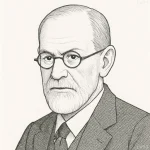“When one has not had a good father, one must create one.”

- October 15, 1844 – August 25, 1900
- Born in Germany
- Philosopher, poet, and classical philologist
table of contents
Quote
“When one has not had a good father, one must create one.”
Explanation
In this quote, Friedrich Nietzsche reflects on the importance of personal development and self-empowerment, particularly when it comes to the influence of a father figure in one’s life. Nietzsche suggests that when a person does not have the benefit of a positive father figure—whether due to absence, inadequacy, or failure—it becomes the individual’s responsibility to create their own model of strength, guidance, and moral direction. This “created father” represents the ideal qualities that one might have wished to inherit from a father but did not receive. Nietzsche’s insight speaks to the idea of self-overcoming, where individuals who lack external guidance or positive influences are still capable of forging their own path and shaping their own sense of identity and purpose.
Historically, Nietzsche often critiqued traditional societal structures and family roles, especially the way that religious and moral systems sought to dictate how people should live their lives. He emphasized the importance of individuals creating their own values and meaning rather than relying on external authorities. This quote reflects Nietzsche’s belief that people must take responsibility for their own development, especially when the traditional figures of authority—such as a father—fail to provide the necessary foundation for growth.
In modern contexts, this quote can be applied to the broader idea of personal empowerment and self-actualization. For individuals who may not have had the ideal parental influence or mentorship, Nietzsche encourages the creation of one’s own guiding principles and sources of strength. This process of self-creation is key to becoming an authentic, self-sufficient individual who does not rely solely on external role models or structures. Nietzsche’s perspective encourages us to shape our own destiny, taking the lessons from our past experiences, including the absence or failure of certain influences, and using them to create the kind of person we aspire to be.
Would you like to share your impressions or related stories about this quote in the comments section?



